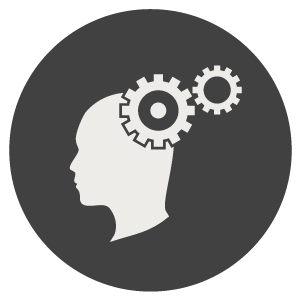How many breaks should we take in a workday?
Episode 5
Breaks are required by law, but we don’t always seem to take them in our day. Do you power straight through your work day or do you step away from your desk here and there? We’ll look at the key to taking effective breaks to boost our mental focus and overall performance. Join us as we speak with Dr. Robert Pozen, author and senior lecturer at the MIT Sloan School of Management, and Dr. Stefan Schneider, a professor at the German Sport University, to explore the importance of breaks and why we should be taking them.
You can also listen on: Apple Podcasts, Google Podcasts, Anchor, Pocket Casts, Breaker, Radio Public
Join the conversation in our Facebook Group
Show Notes
Researchers
Dr. Robert Pozen
Dr. Stefan Schneider
Books
Remote, Inc. - Robert Pozen & Alexandra Samuel
Script Articles:
Campbell, Leigh. “We’ve Broken Down Your Entire Life Into Years Spent Doing Tasks.” HuffPost Australia, 18 Oct. 2017, www.huffingtonpost.com.au/2017/10/18/weve-broken-down-your-entire-life-into-years-spent-doing-tasks_a_23248153
Pryce-Jones, Jessica. Happiness at Work: Maximizing Your Psychological Capital for Success. 1st ed., Wiley, 2010.
Lavie, Peretz, et al. “Ultradian Rhythms in Prolonged Human Performance.” United States Army Research Institute for Behavioural and Social Sciences, 1995, apps.dtic.mil/dtic/tr/fulltext/u2/a296199.pdf
University of Illinois at Urbana-Champaign. “Brief Diversions Vastly Improve Focus, Researchers Find.” ScienceDaily, 8 Feb. 2011, www.sciencedaily.com/releases/2011/02/110208131529.htm
Gifford, Julia. “The Secret of the 10% Most Productive People? Breaking!” DeskTime Insights, 12 Mar. 2020, desktime.com/blog/17-52-ratio-most-productive-people
Gillen, Jenna B., et al. “Twelve Weeks of Sprint Interval Training Improves Indices of Cardiometabolic Health Similar to Traditional Endurance Training Despite a Five-Fold Lower Exercise Volume and Time Commitment.” PLOS ONE, edited by Øyvind Sandbakk, vol. 11, no. 4, 2016, p. e0154075. Crossref, doi:10.1371/journal.pone.0154075
Trewin, Adam J., et al. “Acute HIIE Elicits Similar Changes in Human Skeletal Muscle Mitochondrial H2O2 Release, Respiration, and Cell Signaling as Endurance Exercise Even With Less Work.” American Journal of Physiology-Regulatory, Integrative and Comparative Physiology, vol. 315, no. 5, 2018, pp. R1003–16. Crossref, doi:10.1152/ajpregu.00096.2018
Harvard Health Publishing. “Sour Mood Getting You Down? Get Back to Nature.” Harvard Health, 2018, www.health.harvard.edu/mind-and-mood/sour-mood-getting-you-down-get-back-to-nature
Robbins, Jim. “Ecopsychology: How Immersion in Nature Benefits Your Health.” Yale E360, 9 Jan. 2020, e360.yale.edu/features/ecopsychology-how-immersion-in-nature-benefits-your-health
Ulrich, Roger S., et al. “Stress Recovery During Exposure to Natural and Urban Environments.” Journal of Environmental Psychology, vol. 11, no. 3, 1991, pp. 201–30. Crossref, doi:10.1016/s0272-4944(05)80184-7
Trougakos, John P., and Ivona Hideg. “Momentary Work Recovery: The Role of Within-Day Work Breaks.” Current Perspectives on Job-Stress Recovery, 2009, pp. 37–84. Crossref, doi:10.1108/s1479-3555(2009)0000007005
Kühnel, Jana, et al. “Take a Break! Benefits of Sleep and Short Breaks for Daily Work Engagement.” European Journal of Work and Organizational Psychology, vol. 26, no. 4, 2016, pp. 481–91. Crossref, doi:10.1080/1359432x.2016.1269750
Tork. “Take Back the Lunch Break Survey Findings.” Tork, 2018, cdntorkprod.blob.core.windows.net/docs-c5/763/185763/original/tork-takes-back-survey.pdf


